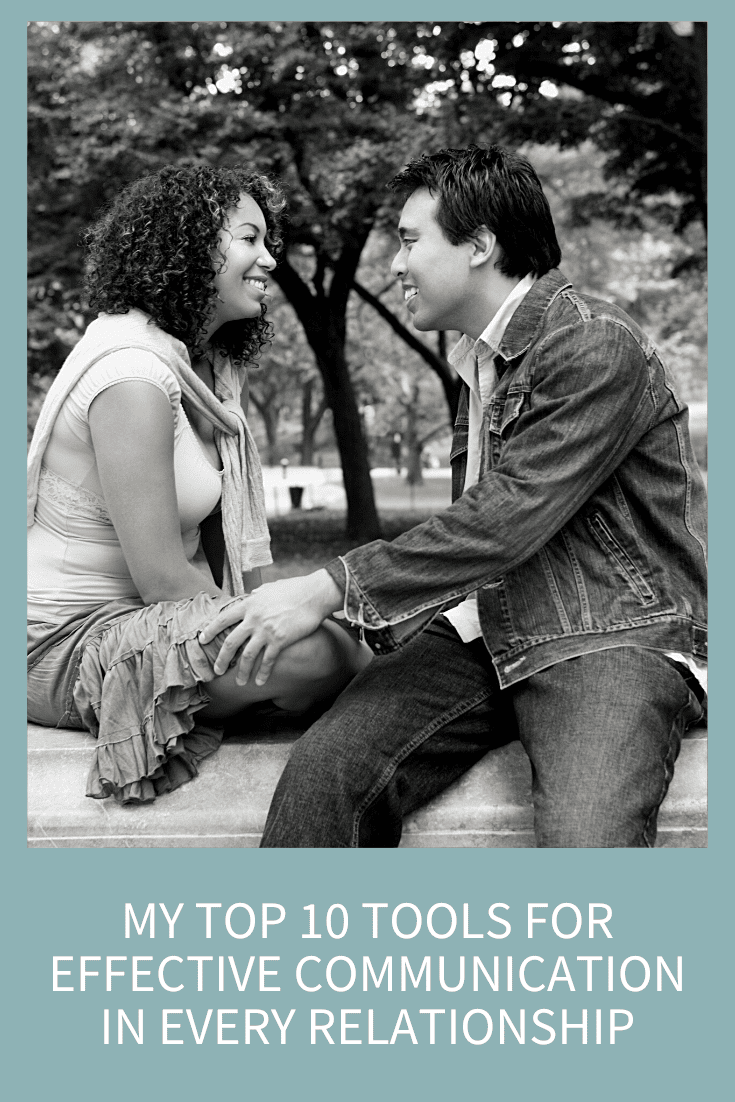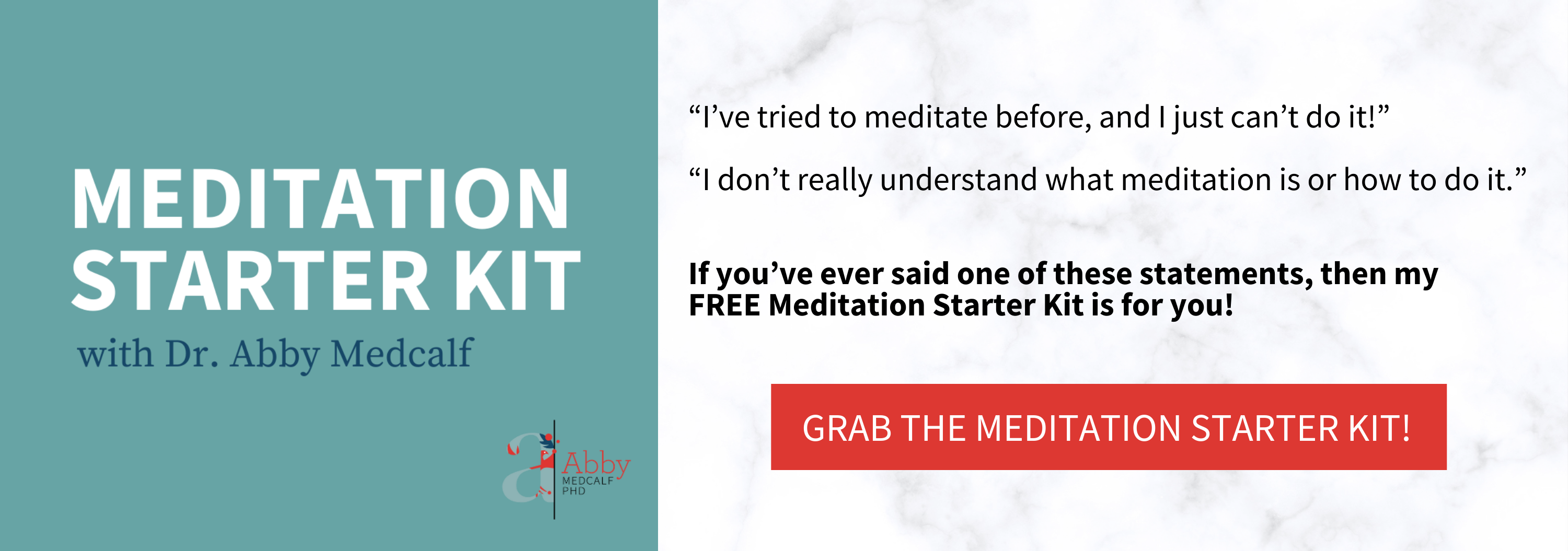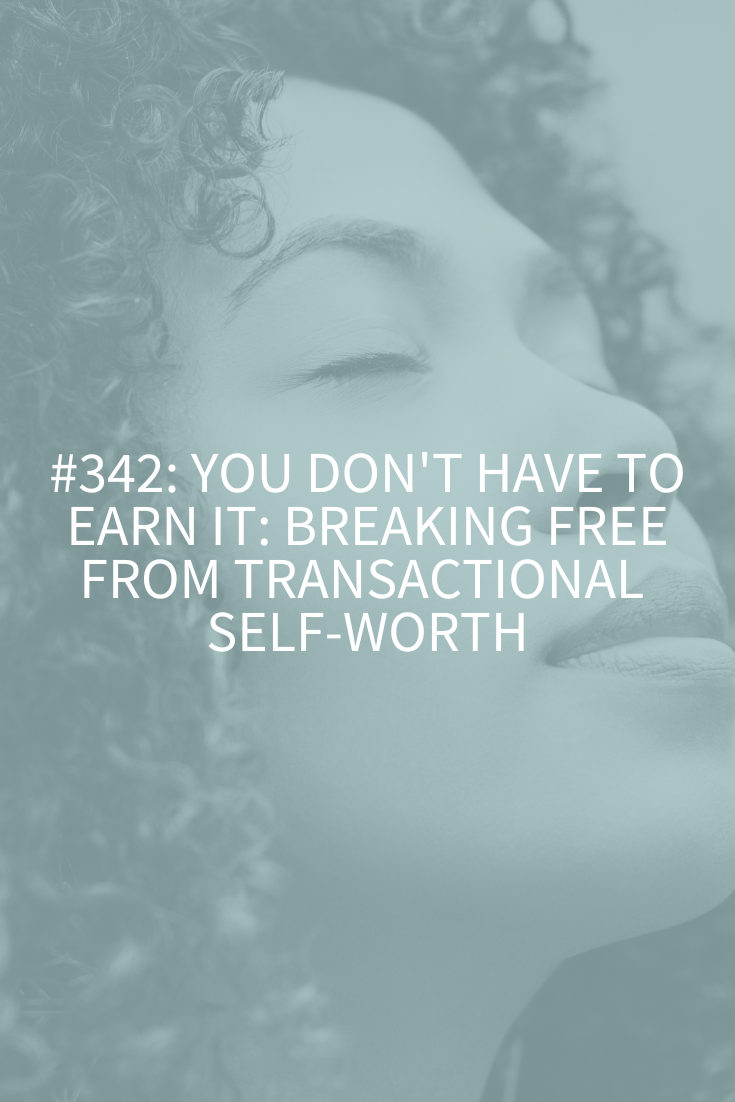
In the last three decades I’ve learned a lot about what works and what doesn’t when it comes to happy, connected relationships and effective communication. Since this is the 200th episode of the podcast, I thought it would be the perfect time to recap my top ten tools for effective communication in every relationship. These tools work for all relationships although most people are interested in how to communicate better with their partner, so I’ll default to that relationship here, but please remember that these are the tools you want to use at work, with your parents, siblings and friends too.
8-minute read
My Top 10 Tools for Effective Communication in Every Relationship
Top Tool #1: Being Mindful and Meditating Daily
There’s no greater communication tool than being mindful. When you’re consciously aware of how you’re thinking and feeling in a moment, you’ll be able to act, not react. You’ll see your own fear come up and you’ll be able to regulate your emotions and your reactions so you can have more rational, clear and loving conversations. When we’re distracted and not in the here and now, we respond in unhealthy ways and then later think, “Why didn’t I do X?” or “Why did I say that?!” or “I always forget all the great tools I learned in the heat of the moment!” Mindfulness cures all these things (really) and it takes just minutes a day to become a mindfulness ninja.
Top Tool #2: Decide if You Want to be Correct or Effective
You can be “right” all day long that your partner shouldn’t leave their dirty dishes on the counter but if you’ve asked multiple times for them to stop, and it’s still happening, then you’re not being effective, and you feel resentful and frustrated! You can be right all day that your coworker should be more thoughtful of the team and get their work in on time so everyone’s not waiting for them, but if you’ve been complaining about them for a while, you’re not being effective.
When you focus on being right, it means the other person must be wrong and communication and connection are lost. You’ve got to choose, each time, whether you want to be correct or effective.
Next time you want to tell someone how wrong they are, stop and think, “How do I want to feel after this conversation?” or “How do I want my partner/friend to feel after this interaction?” Then think about a new strategy to get you closer to what you really want (a connected and effective relationship is always the ultimate goal).
Top Tool #3: You Have to Connect to Correct
You need to connect emotionally with another person if you want to be heard. So, before you correct them about something or ask for something to change, make sure there’s some kind of connection first. The best time to speak to someone about something that’s bothering you is when you’re getting along and doing well. You might be thinking, “I don’t want to rock the boat” but that’s the best time to ask for what you need!
Top Tool #4 Set Intention Often
I call setting intention the 18-second shift (because that’s all it takes). When you consciously set a positive intention for how you want to be before you walk into work or before you sit down to a meal with your partner, other people will 100% notice, even if you don’t state your intention out loud. It’s a way to easily and quickly shift your attention to what’s wanted and helps you keep your eye on the prize. My clients routinely say that this is a game changer for effective communication so start setting intention right now.
You can also set intentions out loud before you begin a dialogue with someone:
- I don’t want any suggestions or advice; I just want your support or for you to listen with an open mind.
- It’s my intention that we have a great conversation and listen to one another.
Top Tool #5: Don’t SAC your Relationship
Make sure you don’t SAC in any dialogue. This means you don’t offer Suggestions, give Advice or Criticize. Instead, affirm and ask open-ended, collaborative questions.
Deepening connection and building effective communication is all about nonjudgmental listening.
It’s important to listen like you’re wrong because when you’re sure you’re right about something or you’re trying to convince someone to come over to your way of thinking, you’re no longer really listening, which means no effective communication (or problem-solving) can happen. Instead, practice listening like you’re wrong when your someone is sharing their point of view.
Make curiosity, openness and willingness your main goals when listening to differing opinions.
I will say that this is especially important in your romantic relationships. You and your partner are a team so anything they’re struggling with is shared. Asking collaborative questions is the way to be a great teammate and let your partner know they don’t have to tackle their issue alone. Help your partner find healthy solutions to what’s bothering them with open-ended questions which are questions which basically can’t be answered with “yes,” “no,” “good,” or “fine.”
- Could you tell me more about X?
- If there was one thing I could do to help you right now, what would it be?
- What have you already tried that’s worked/hasn’t worked?
- Is there anything you need right now?
When you stop offering suggestions and instead ask questions, you’ll show your partner you have their back and that, together, you can solve anything that comes your way.
Top Tool #6: Communicate in a Triangle, Not a Line.
Stop negotiating or bargaining along some straight line with you at Point A and the other person at Point B. When you approach issues like this, the only thing to do is to meet in the middle but there really is no middle. Both parties walk away feeling like they gave up more than the other person, so you each walk away feeling resentful and ripped off.
Instead, think of decision-making as a triangle. You’re each at one of the bottom bases of the triangle and instead of trying to meet in the middle, you’re trying to meet at a point above you where some as yet unknown solution is waiting to be created. This top point of the triangle is a new potential that no one has even considered yet. Start asking questions and really get the dialogue going and find a new solution together that’s generated from both of your thinking.
Top Tool #7: Don’t Assign Meaning or Definitions to Another’s Actions
- “If he appreciated me, he wouldn’t leave his dishes around.”
- “She knew she was being mean when she said that.”
- “He’s not paying attention to me because he’s fallen out of love with me.”
All of these are examples of ascribing meaning to something your partner, friend or coworker is or isn’t doing and it’s all a guess on your part (and, in my experience, most often a wrong guess). You can’t read someone else’s mind! Your brain is built to fill in the blanks when it’s scared and that means filling it up with erroneous “facts.” This all adds up to bad assumptions and disjointed communication.
If you’re having a feeling about something, ask for clarification. “What did you mean when you said X?” “What were you thinking my reaction would be when you did Y?” Ask from an open and loving heart and find out what the other person truly means and stop assuming.
Top Tool #8: We Connect with Feelings, Not Thoughts
Effective communication happens when you connect on a feeling level with another person. The problem is that most discussions revolve around the content of what you’re talking about (logistics, facts, people, thoughts about things, etc).
Ask the other person (as often as possible) how they feel in a dialogue and make sure they answer with a feeling (happy, angry, sad) and not a thought (I feel like you should have told me about your problems at work). If they answer with a thought, gently ask them to share how they feel (this sometimes takes a few rounds as many people aren’t aware of their true feelings).
Don’t say what you’re thinking about something, say how you feel about that thing. This creates real vulnerability which creates true connection and communication.
Top Tool #9: Go into Every Conversation Trying to Learn Something, Not Prove Something
When you go into a conversation with the intention that you’re right and they’re wrong, you’ll spend all your time defending your position and not really listening as you think about what you want to say next.
Instead, go into the conversation with the intention of learning something about why this person is acting the way they are. Go in with the intention of first trying to understand where they’re coming from before bringing in your opinion and thoughts.
Remember that there’s no ultimate right or wrong. Your opinion about something isn’t a fact; it’s your preference.
Top Tool #10: Show Empathy, Not Sympathy
When we feel sympathy for someone, we jump in and want to “do” for them, which is great if your friend’s dad died but not great if your partner is having trouble with someone at work. Empathy means you have compassion for how they’re feeling and can even take on that feeling yourself to really be there with them in their pain or frustration.
When someone shares something that upset them, but it’s not something that would upset you, it’s hard to find the compassion, patience or empathy for what they’re experiencing. That’s because you’re focusing on the wrong thing.
To show empathy your first goal is to identify what the other person is feeling. Then, instead of focusing on the circumstance and putting yourself in that situation, focus on the feeling and think of a time you’ve had that feeling. Be in that feeling for just a moment and the connection will follow. From there, communication is a piece of cake.
Resources for Effective Communication
How 5 Minutes of Mindfulness a Day Can Make Your Relationship Great
How to Make Mindfulness a Habit
Two Strategies You Need to Communicate Effectively
How to Set Intention in 18 Seconds (aka The 18-Second Shift)
8 Rules for Giving Great Feedback
How to Listen without Getting Defensive or Hurt
My Partner Doesn’t Listen to Me
Keeping Score in Your Relationship Makes You Lose
Bad Questions Are Ruining your Relationship
The 5-Step Process to Making Decisions and Getting Out of Analysis Paralysis
Change Your Language, Change Your Relationship
Developing Empathy in Relationships is the Key to Connection and Communication








